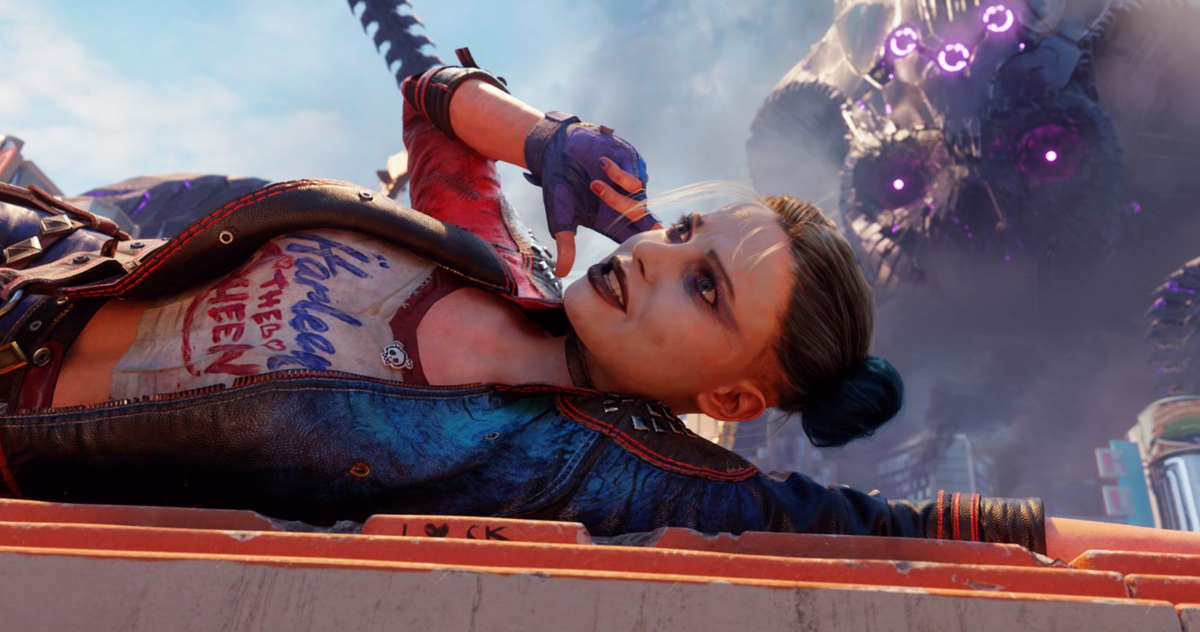The failed launch of Suicide Squad: Kill the Justice League resulted in huge losses for Warner Bros. A new report sheds light on the game’s troubled development and its misguided live service ambitions.

For his new Bloomberg report, Jason Schreier interviewed nearly two dozen people who worked on Suicide Squad: Kill the Justice League.
Warner Bros. planned to create a Suicide Squad game to capitalize on the success of the 2016 movie. Although the company’s Montreal studio already had a project in development based on this IP, David Haddad, the head of Warner Bros. Discovery’s gaming division, pulled the plug on it and turned to the more experienced and acclaimed team at Rocksteady.
Known for its Batman: Arkham series, the studio originally wanted to make a multiplayer puzzle-solving game codenamed Stones. It was scrapped at the end of 2016 in favor of a more ambitious Suicide Squad title, and Rocksteady co-founder Sefton Hill expected to ship it in 2019 or 2020.
However, Suicide Squad: Kill the Justice League faced multiple delays and only released in February 2024. The game received mixed reviews from the press and players, turning out a huge commercial flop for the parent company. According to Bloomberg, Warner Bros. revealed earlier this month that it was taking a “$200 million loss on Suicide Squad.”
Reasons why Suicide Squad: Kill the Justice League failed
Here is what anonymous sources told Schreier:
- Warner Bros. executives fell into the live service trap — convinced that the industry’s future lies in endless GaaS projects like Destiny, they wanted to have their own $1 billion dollar franchise;
- Rocksteady, which had no experience in the field, expanded from 160 to more than 250 people over the next seven years (the team was still much smaller compared to successful live service games, but the increased size led to mismanagement);
- Suicide Squad was kept secret during the early production stages, resulting in new talent leaving the studio after finding out that they would have to work on a multiplayer game rather than a single-player experience;
- The game’s vision was constantly shifting, with developers spending months iterating on concepts that eventually had to be scrapped (e.g. melee combat, vehicle system);
- Sefton Hill’s perfectionism added fuel to the fire: devs had to wait weeks or months for him to review their work, with him also scrapping big chunks of script;
- Constant delays undermined team morale, with some employees describing the company’s culture as “toxic positivity” because it discouraged criticism;
- Lack of experience in multiplayer games led to Rocksteady struggling with levels and boss fights: the studio previously focused on story-driven experiences and didn’t know how to design these activities without making them repetitive and tedious;
- Sudden departure of Rocksteady co-founders shocked the staff: neither Hill nor Jamie Walker explained why they left the company, but reportedly lured Rocksteady devs to their new studio Hundred Star Games by promising them the “opportunity to make a game free of the mandates and pressures from a corporation like Warner Bros.”
“Rocksteady magic”
All these problems are reminiscent of stories about similar live service games made by studios with no prior experience in the field. Troubled development of Redfall comes to mind, not to mention earlier examples like BioWare’s Anthem.
Despite growing concerns during the production on Suicide Squad, the studio’s management tried to convince the team that the game “would eventually coalesce at the last minute, just as the Arkham games had.”
This approach is very similar the so-called “BioWare magic,” which was perfectly described Mark Darrah, former executive producer at BioWare: “That’s where crunch comes from and that’s where delayed games come from because you can’t predict with a hockey stick [a model where a team is not making any visible progress for the most part of the production until elements finally start working together and a studio ‘magically’ finishes the game].”
According to Darrah, the hockey stick model is usually a result of bad scheduling and management. “There is no predictability there at all,” he said, meaning that leaders who rely on this approach never actually know where the pivot point is and when things will eventually go faster. And sometimes such projects could stuck in production hell forever before being canceled by a publisher or parent company.
Luckily for Rocksteady, the failure of Suicide Squad didn’t lead to layoffs or other unpleasant outcomes (Warner Bros. thinks its gaming division is still understaffed compared to its rivals). According to Bloomberg, the studio is now helping to developer the extended version of Hogwarts Legacy, while also preparing to pitch its new single-player game.
